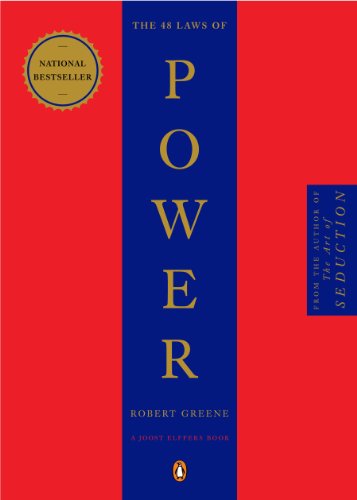

This article is an excerpt from the Shortform summary of "The 48 Laws of Power" by Robert Greene. Shortform has the world's best summaries of books you should be reading.
Like this article? Sign up for a free trial here .
Overview of Law #11: Learn to Keep People Dependent on You
The more that a superior needs you, the more security and freedom you have to pursue your goals, so make him dependent on you. Never let superiors think they can get along without you. Learn to keep people dependent on you.
Principles of Law 11
A big part of exercising power is getting people to do what you want them to do. You can force them in some way, but the best outcome is when they do your bidding willingly. Law 11 of the 48 Laws of Power says that to accomplish this, you need to learn to keep people dependent on you.
This works with people at all levels but is especially beneficial when the person doing your bidding is a superior and you function as the so-called power behind the throne. Make yourself indispensable to him, become so involved in every aspect of his work that getting rid of you would leave him with huge problems. Then you have the upper hand and can get your way.
People often think that being powerful means being independent, but power requires relationships — with allies, dupes, enemies, and superiors. A completely independent person has freedom but not power. When others are dependent on you, however, you have the independence to pursue your goals.
Otto von Bismarck served two weak Prussian kings, Frederick and his brother William, who both needed him desperately; they ceded authority to him and did whatever he told them to do because he’d made it clear that if they didn’t he’d leave them in the lurch. This is the advantage of following Law 11 of the 48 Laws of Power. If you learn to keep people dependent on you, they have a hard time getting rid of you, even when you’re taking their power.
Develop an Irreplaceable Skill
Make yourself so indispensable that your superior is afraid to tempt fate and find out what her life would be like without you. One way to learn to keep people dependent on you is to have an irreplaceable skill or talent.
One of Michelangelo’s patrons was the pope, and although they argued constantly the pope never fired him — Michelangelo was such an immensely talented artist that he could easily find another patron, but the pope knew he’d never find another Michelangelo. Michelangelo knew the value of Law 11: Learn to Keep People Dependent on You.
Try to create a similar situation, in which you could easily take your talent elsewhere but your boss couldn’t easily find someone of equal caliber to replace you. If you don’t have that kind of irreplaceable knowledge or skill, you can fake it — but you’re more powerful if you have the real thing, and others’ dependence on you is real.
It can be just as effective to make your boss indirectly dependent on you, by being a link in a chain of dependence. For instance, Columbia Pictures couldn’t get rid of a screenwriter, John Howard Lawson, when he was targeted as a supposed Communist in the 1950s witch-hunt — because Lawson was Humphrey Bogart’s writer and Bogart was the film company’s star.
There are two ways to ply your talent that will keep your superior in your debt. One is to focus on one extraordinary skill as Michelangelo did. The other is to apply your talents broadly.
For instance, Kissinger knew the value of learning to keep people dependent on you. Henry Kissenger and Richard Nixon didn’t like each other, but Nixon kept Kissinger as secretary of state because Kissinger was enmeshed in virtually all aspects of the administration. He had allies in all departments and his knowledge and involvement in operations was so extensive that without him, Nixon’s policies and plans could have unraveled. However, having a single extraordinary skill gives you more power because it’s more transportable.
Another way to keep people dependent on you is to know their secrets. Intelligence chiefs from ancient times to J. Edgar Hoover knew secrets that made them untouchable. The downside was that they lived in a world of such paranoia that they could never rest easily.
Final point: Don’t expect to be loved by your boss for your indispensable services. She’s more likely to resent or fear you. Fear is better than love in terms of providing job security because it’s controllable.
Putting Law 11 to Work
Ensure that you’re truly indispensable — don’t take it for granted. Be constantly vigilant — at any time someone could appear who could replace you. They may be more appealing to your boss if they’re less costly or less threatening.
Here’s an example of how to apply Law 11 of the 48 Laws of Power. Many of the great military leaders of Renaissance Italy were surprised to end up imprisoned or executed after heroic service. The reason was that their success became threatening to their superiors, and they were replaceable with younger, cheaper mercenaries.
However, Otto von Bismarck made sure he could not be replaced. When he joined the Prussian parliament in the 1800s, he immediately aligned himself with the weak king, Frederick. Most people align themselves with powerful people, but it’s difficult to create a mutual dependence with a strong person.
Bismarck first built up trust by supporting and defending the king against critics and opponents. Frederick rewarded him with a promotion to minister, which Bismarck used to get the king to build up the military and stand up to opponents. He did the same with Frederick’s successor, William, pushing him to be stronger and more decisive. William didn’t like Bismarck but grew dependent on him, even making him prime minister. Bismarck got whatever he wanted by threatening to resign. Eventually, he manipulated the king into making him emperor.
Like Bismarck, make sure you’re the only one who can do what you do, and intertwine yourself in your superior’s business to the point that he can’t possibly get rid of you.
Exceptions to Law 11
Are there exceptions to Law 11 of the 48 Laws of Power? When others are dependent on you, you’re somewhat dependent on them in turn. The only way to be fully independent is to remove those above you. You could stand alone like a J.P. Morgan or John D. Rockefeller, having crushed your competition, but you’d pay a price. You’d be isolated and would generate resentment and create enemies. Total independence is usually short-lived and often fatal.
Rather than looking for exceptions to Law 11, you’re better off creating a mutual dependence — you’ll have less pressure and your superior will do your bidding. In general, follow Law 11: Learn to Keep People Dependent on You.
———End of Preview———

Like what you just read? Read the rest of the world's best summary of "The 48 Laws of Power" at Shortform . Learn the book's critical concepts in 20 minutes or less .
Here's what you'll find in our full The 48 Laws of Power summary :
- Why you should never outshine your boss
- How to appear like a friend but behave like a spy
- The 6 rules you absolutely must not violate, if you want to be successful






